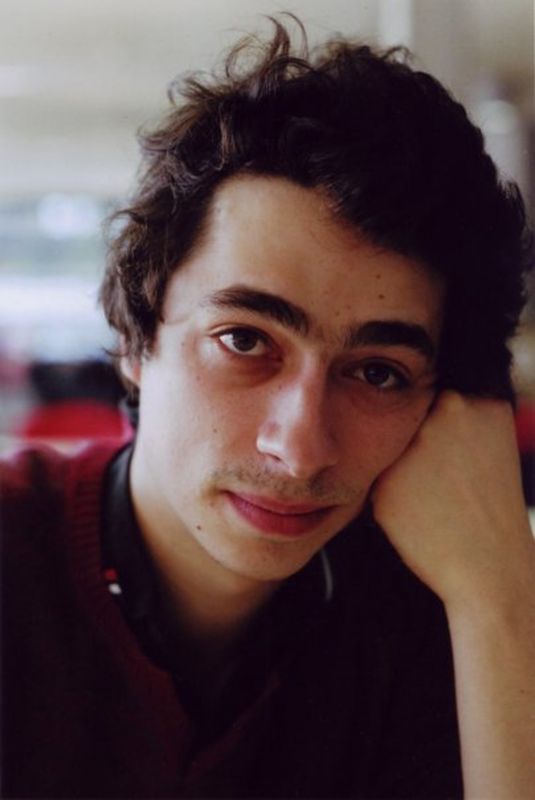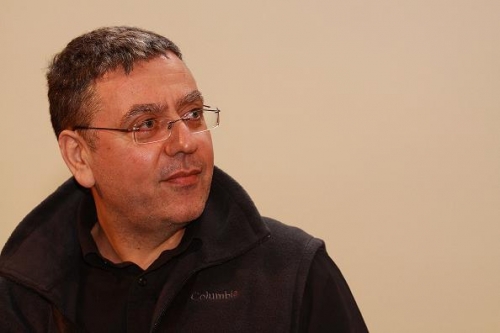|
|
||
|
Pro Tools
FILMFESTIVALS | 24/7 world wide coverageWelcome ! Enjoy the best of both worlds: Film & Festival News, exploring the best of the film festivals community. Launched in 1995, relentlessly connecting films to festivals, documenting and promoting festivals worldwide. We are sorry for this ongoing disruption. We are working on it. Please Do Not Publish until this message disappears. For collaboration, editorial contributions, or publicity, please send us an email here. User login |
Sofia International Film FestivalFor 16th year Sofia International Film Festival will gather together in Sofia films, guests, stars, journalists and cinema fans from 9th until 18th March 2012. Featured in Variety’s Top 50 of cinema festivals, the event presents Bulgaria to the world as the host one of the important film festivals in Europe and takes place annually in March. What started as a thematic music film festival, went through 15 previous editions to become the cinema event of the year, bringing the current world cinema trends to the domestic viewers in Bulgaria and the latest in Bulgarian cinema to the rest of the world. Since 1997 more than 1,600 feature films and documentaries have been screened within the festival’s framework. More than 1,000 distinguished guests have attended, including established professionals such as Wim Wenders, Volker Schlondorff, Katja Riemann and Karl Baumgartner (Germany), Alan Parker, Peter Greenaway, Terry Jones, Michael Palin, Tony Palmer and David Mackenzie (United Kingdom), Nikita Mikhalkov, Andrei Konchalovsky, Karen Shakhnazarov and Bakhtyar Khudojnazarov (Russia), Jiri Menzel, Jan Sverak, Jan Hrebejk and Petr Zelenka (Czech Republic), Emir Kusturica (Yugoslavia), Krzysztof Zanussi (Poland), Otar Iosseliani (Georgia), Jean-Claude Carriere, Agnes Varda, Siegfried and Jacques Dorfmann (France), Assumpta Serna (Spain), Bent Hamer and Unni Straume (Norway), Jafar Panahi and Babak Payami (Iran), Jerry Schatzberg, Michael Wadleigh and Lech Kowalski (USA), Jos Stelling (the Netherlands), Mika Kaurismaki (Finland), Friðrik Þór Friðriksson (Iceland), Lone Scherfig (Denmark), Kornel Mundruczo (Hungary), Goran Markovic, Goran Paskaljević, Radivoje Andric, Dusan Milic, Srđan Karanović and Srđan Dragojević (Serbia) and many others.
The festival is organized by Art Fest under the auspices of the Municipality of Sofia and in partnership with the Bulgarian Ministry of Culture, the National Palace of Culture, the National Film Center and the Bulgarian National Television with the support of the MEDIA programme of the European Commission, national and foreign cultural institutes and sponsors.
For its 10th anniversary as an international cinema event in the year 2010 named Year of Bulgarian Cinema, Sofia International Film Festival received as present the recognition from FIAPF (International Federation of Film Producers Associations) - it was accredited as competitive festival specialized in first and second films. Since its creation the director of the festival has been Stefan Kitanov.  MOTHERS by Milcho Manchevski, Aruba review!
MOTHERS (2010) by director Milcho Manchevski screened at the 2nd annual Aruba International Film Festival (AIFF) 2011. Here find a review of the award-winning film that saw its opening in Toronto at TIFF 2010, screened at Berlinale 2011, won the prize for best feature at Belgrade International Film Festival 2011 and thereafter traveled to Sofia (SIFF), Istanbul International Film Festival (IFF), Aruba (AIFF) and many others, continuing its international festival journey. MOTHERS, a rave review! Fiction, nonfiction, and everything else in between and without- this is the dizzying dialectic of Milcho Manchevski’s latest film MOTHERS (2010). MOTHERS is a feature film structured as a triptych of three parts, of ‘mothers’ in modern-day Macedonia where each story is seemingly unrelated to the other, autonomous to itself, and yet linked in an abstract way. The film begins with a fictional thesis- a story about two young girls upsetting their mother when they make up a story of a lewd man who has been allegedly flashing them. The girls make their complaint to the police about this supposed stalker. But are the girls sure of their facts? After all, they are playing witness to something they never actually saw themselves, only what their friends say they saw. But the girls believe this make-believe fantasy so much that it becomes reality for them. The second film acts as another kind of fiction but with an element of nonfiction within it where three young twenty-something documentary filmmakers travel to the countryside of Macedonia. This is where steep tradition and age-old village life are visibly going extinct while technology and homogenous Westernization continue to lay siege in all corners of the world. These documentarians attempt to record what little remains of their rapidly fading culture while at the same time they get entangled in a fiery love triangle. The third and final section proves an antithesis to both previous narrative fiction sections in its hard documentary style- gloomy lighting, gray colors, depressing subjects, too long and too real, forcing the viewer to question the link between the two previous films and this one. It is a documentary about the mysterious case of a serial rapist and killer in Macedonia who went for many years without being caught. When the alleged killer’s identity is revealed all are shocked to learn that he was a crime reporter who wrote about the murders themselves and lived next door to all the victims. He eventually died in a bucket of water in prison after he was caught, making the subject of this all too real documentary better than fiction in its outrageous irony. With all these mixed genres and seemingly very separate stories, what does it all mean? The first film is short and riveting and leaves one in awe over the inventive imagination of a child and the consequences of it, and calls to question what we consider truth. And then we move on to the next story, which is told in a beautiful lyrical way, shaped like traditional narrative storytelling with actors, conflict and an arc. This is BEFORE THE RAIN (1994) stuff here and Milcho demonstrates his enduring ability to make a poignant, moving narrative film. With this stunning middle tale he draws the viewer in only to slap us in the face with his very jarring final film- the unattractive, and meticulously constructed factual documentary. When asked about his strange transition from a harmonious and moving narrative film to a completely unrelated documentary he replied, ‘fiction is all nice and pretty but what are we going to do with the ugly reality?’ So, what does that say? It was loud and clear what his message was. Milcho wants us to think. Isn’t that what great art should do? Disturb us and make us feel something in order to care or be changed by it somehow? Is the invented story of the two girls in the first film really fiction or does it remind us how real the imagination is and how something dreamed up can become truth if one believes it is? Is the third film, the documentary, trustworthy or could it be a biased point of view steeped with only half-truths? Who says something is ‘nonfiction’ and why should we believe it is so, just because someone tells us to? Or is the middle narrative film which strives to tell a story with as much verisimilitude as possible and in its poetry somehow hits on a truth that lies somewhere in between fiction and nonfiction? Therein is the eternal dialectic of what are reality and fantasy and our folly in sticking to one side over the other. MOTHERS forces us to question these blurred states of being (and non-being if you will) showing us once again as he did so expertly in BEFORE THE RAIN that the ‘circle is not round’. Review written by Vanessa McMahon June 15, 2011 photos by Vanessa McMahon 04.07.2011 | Sofia International Film Festival's blog Cat. : Aruba Aruba review! Before the Rain Director Documentary film Entertainment Entertainment Fiction Film Genres Istanbul International Film Festival Literature Macedonia Milcho Manchevski Milčo Mančevski MOTHERS by Milcho Manchevski Narratology Non-fiction Person Career Person Location Reporter Sofia Toronto Toronto International Film Festival Vanessa McMahon June Vanessa McMahon Milcho Fest. circuit
|
LinksThe Bulletin Board > The Bulletin Board Blog Following News Interview with EFM (Berlin) Director
Interview with IFTA Chairman (AFM)
Interview with Cannes Marche du Film Director
Filmfestivals.com dailies live coverage from > Live from India
Useful links for the indies: > Big files transfer
+ SUBSCRIBE to the weekly Newsletter DealsUser imagesAbout Sofia International Film Festival International film festival for feature films, documentaries and shorts (mainly Bulgarian). Main themes: International competition for first and second films, Balkan & Bulgarian cinema, Cinema Europe, World screen, retrospectives. View my profile Send me a message My festivalThe EditorUser contributions |




























